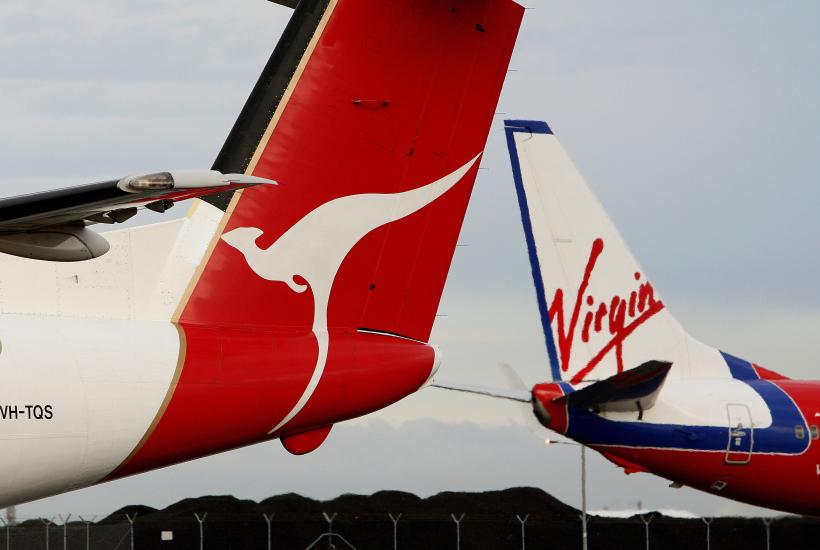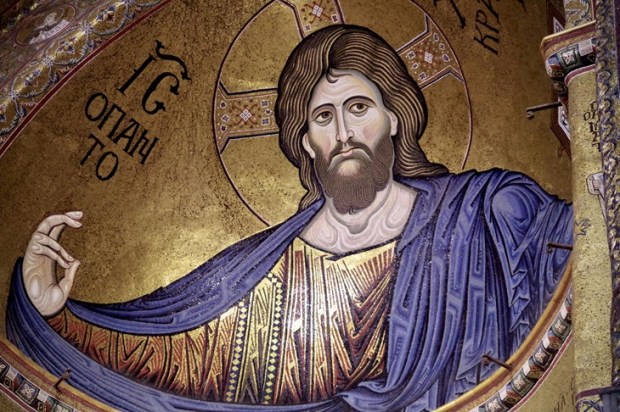A war of words has erupted around Virgin’s announcement that they would give ex-servicemen and women priority boarding and in-flight thanks. Quite surprisingly to many, Australia’s leading corporate virtue-signaller, Qantas, has released a statement saying they “find it difficult to single out a particular group as part of the boarding process.”
Qantas had no reticence at all in arrogantly singling out the campaign to undefine marriage as worthy of mention on boarding passes, in-flight magazines and an entire plane adorned in rainbows. Qantas cavalierly marginalised the 40 per cent of customers and staff who disagreed with the fringe social agenda as anti-equality bigots obviously deficient in character, for the benefit of a mere thousand or so homosexual couples who have since taken advantage of the opportunity to have a government bless their relationship. Singling out a particular group for special attention would appear to be a well-honed Qantas marketing strategy.
Who can say with any real certainty whether the announcement by Virgin is a marketing strategy or a sincere attitude of appreciation for defence members? Why can’t it be both at the same time?
I do agree that perhaps Virgin could be more practical with its gestures of appreciation. A simple and even modest discount would be putting their money where their mouth is, and they could still know that there were one or more veterans on board and thank them in-flight without drawing unwelcome attention to them.
Comments from various sad and cynical identities condemning the move as “tokenistic” and “a marketing ploy” are short-sighted and miss the bigger picture.
The fact is it’s important to show our appreciation to the men and women who have served or currently serve in our defence and police forces, as well as their families left behind. To be sure, not one of them serves for public applause, and when thanked many do feel uncomfortable. But maybe it’s not that they need to be thanked as much as we need to be a nation that finds it important to thank them. It’s about who we become by doing so.
We need to be the type of people who communicate our appreciation because that exercise of humility and gratitude reminds us that what we enjoy so commonly and often take for granted was provided and is preserved at great cost. Edmund Burke observed, “That which we obtain too cheaply, we esteem too lightly.” We, as a people, need to remind ourselves that freedom is not free, and always under attack.
I’ve made it my personal culture to thank police officers, even while they’re giving me a ticket, for the job they do and the danger they face every day from enemies who don’t wear uniforms. I thank defence members, past and present – and their families – for the sacrifices I know they make throughout their careers. It feels weird to do so, but it’s valuable.
Is it over the top? I don’t care if it is. It’s important that I maintain an attitude of gratitude. In the wake of being forced to celebrate a completely unhelpful American import like Halloween in supermarkets, I believe allowing some of the respect and patriotism American culture exhibits for their veterans and flag to rub off on our culture would be a significant asset.
If you’ve ever watched a video of the reunion of recently deployed veterans surprising their spouse, young kids or even dogs upon their safe return on YouTube and then watched another, you know the price defence members and their families pay for the public benefit. Peter van Onselen may minimise the value of their service if they were “just” a cook and not in frontline combat, but I don’t. To all the cooks, clerks and musicians who served: thank you for your service. Thank you all.
The disgusting and dangerous campaign of leftists against the military became personal during the Vietnam War years and was a significant factor in our defeat. We must never allow such attitudes to be dignified again, and indifference is not a solution. Quiet appreciation is also not enough. While it may be our collective culture to be understated, that doesn’t make it right in every context. The best solution to ingratitude is to display the opposite spirit: public gratitude.
The difference between virtue-signalling and virtue is that one demonstrates your submission to post-truth political correctness, and the other is a commendable quality of character.
It’s important to the character of our nation that we express to service men and women the humble gratitude we have for their service at every opportunity.
“Thank you” should never be assumed. It should be said.
Dave Pellowe is a writer and speaker and blogs at PelloweTalk.com
Got something to add? Join the discussion and comment below.
Got something to add? Join the discussion and comment below.
Get 10 issues for just $10
Subscribe to The Spectator Australia today for the next 10 magazine issues, plus full online access, for just $10.


























Comments
Don't miss out
Join the conversation with other Spectator Australia readers. Subscribe to leave a comment.
SUBSCRIBEAlready a subscriber? Log in